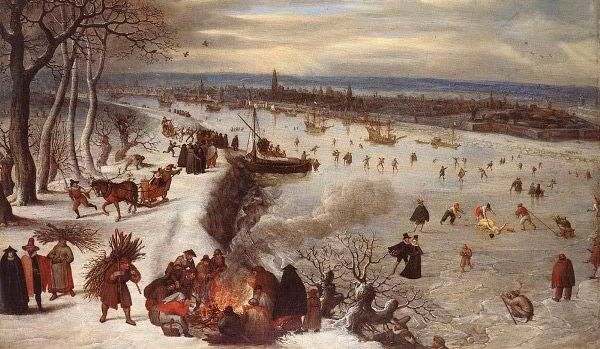New publications
This winter will start the development of a new ice age
Last reviewed: 02.07.2025

All iLive content is medically reviewed or fact checked to ensure as much factual accuracy as possible.
We have strict sourcing guidelines and only link to reputable media sites, academic research institutions and, whenever possible, medically peer reviewed studies. Note that the numbers in parentheses ([1], [2], etc.) are clickable links to these studies.
If you feel that any of our content is inaccurate, out-of-date, or otherwise questionable, please select it and press Ctrl + Enter.
Scientists from Great Britain are confident that the next Little Ice Age is beginning to form this winter.
Over the past few years, winters have become increasingly warm, which has given rise to many concerns about the threat of global warming. However, scientists from the British University of Northumbria are confident that the unexpectedly cold winter of 2017 is not a random meteorological phenomenon, but a completely natural fact, and people need to prepare for the onset of a new Little Ice Age.
According to scientists, the cooling will begin in 2017 and will increase gradually, year after year, reaching its peak subzero temperature by 2030. Experts associate this information with a slow decrease in solar activity, which over the next thirteen years will fall by approximately 60% of its current activity.
The spots found on the Sun are "to blame" for the decrease in solar activity. These spots, at their maximum concentration, previously led to an increase in temperature indicators on our planet. At the moment, scientists are observing an unusually small number of such spots on the surface of the Sun - this is the smallest concentration in the last century.
British scientists are unanimous in their opinion: the leading role in the formation of the climate situation on Earth is played by the activity of the sun. All other factors are of secondary importance and are not capable of significantly influencing the average annual temperature level on our planet.
Scientists from the UK admit that their assumption is not entirely innovative: back in 2015, specialists from Russia pointed out that the increase in atmospheric temperature on Earth could be temporary. They came to this conclusion after a thorough study of the soil masses in the Chukotka lake Elgygytgyn, which was formed at least 3.5 million years ago after a meteorite fell on this place.
For your information: the last Little Ice Age was recorded on Earth between 1645 and 1715. Such phenomena repeat cyclically every 300-400 years. One should not confuse a regular ice age with a little period: humanity will definitely survive, but it is necessary to be prepared for a slow decrease in temperature. What is the threat?

During the last Little Ice Age, record low harvests were recorded, and the population literally starved. Snowfalls increased – even in countries where snow was not observed a priori. The water in the Bosphorus and the Adriatic Sea froze – such a phenomenon is considered a climate cataclysm.
However, along with such forecasts, global warming should not be completely forgotten: human activity over the past centuries has made its own changes to the composition of the atmosphere and, in particular, to the percentage of greenhouse gases. Therefore, natural processes in combination with the "contribution" of man can lead to unpredictable consequences for the planet, which will undoubtedly be taken into account by scientists in their subsequent studies.
